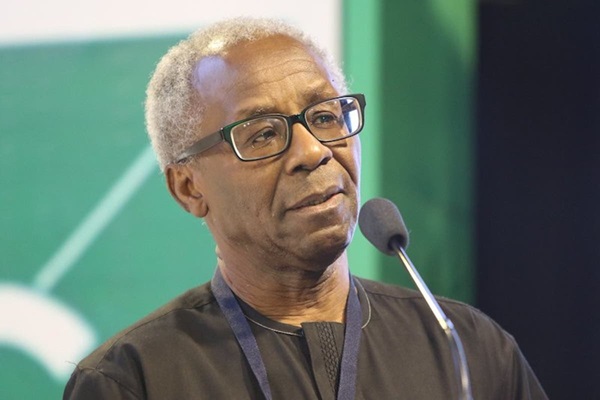
Renowned virologist and public health expert, Prof. Oyewale Tomori has called for a paradigm shift in tackling Africa’s developmental challenges by prioritising homegrown solutions over dependency on foreign aid.
Speaking on Monday at the 2024 African Virology Conference in Abuja, themed “Trends in Emerging and Re-emerging Viruses,” Tomori emphasised the importance of African nations taking ownership of their development journey by addressing inefficiencies, reducing waste and investing in sustainable local initiatives.
“Africa is not resource-limited but resource-wasteful and corruption-constrained,” he declared, stressing that the continent’s reliance on foreign aid undermines its independence and self-reliance.
“If we continue to see ourselves as handicapped, we will keep begging. We must address inefficiencies, waste and corruption instead of assuming we lack resources,” Tomori said.
Using vivid analogies like a “masquerade in a hospital,” he underscored the need for transparency and direct action in tackling Africa’s challenges.
“We need to stop undressing our issues and start addressing them. Remove the mask, understand the problem and tackle it head-on,” he urged.
Reflecting on global equity, Tomori highlighted double standards in international systems, particularly during the COVID-19 pandemic’s vaccine distribution.
He challenged African nations by asking: “If we had discovered the vaccine, would we have shared it while others were dying?”
Tomori also addressed Africa’s struggle to retain talent, citing poor environments that drive professionals abroad.
“We build capacity but fail at retention. It’s our responsibility to create an enabling environment for our people to thrive,” he said.
Drawing comparisons, he pointed to India’s transformation as a model for Africa. Once facing similar developmental challenges, India now produces 60 per cent of the world’s vaccines.
“India built capacity, created the right environment and fostered innovation. Africa must do the same,” Tomori stated.
He posed a critical question: “After 30 years of foreign aid and 60 years of independence, why can’t we take care of ourselves? Something is wrong with us, our approach, or the help we’re receiving.”
Global and Regional Perspectives
WHO country representative for Nigeria, Dr. Walter Mulombo emphasised the importance of robust surveillance and collaboration in addressing emerging and re-emerging viral threats.
“Emerging diseases, driven by factors such as climate change and globalisation, demand enhanced surveillance, rapid diagnostics and targeted interventions,” he said.
Mulombo reaffirmed WHO’s commitment to supporting governments in strengthening health systems and ensuring real-time outbreak responses. He commended Nigeria’s success in eradicating wild polio and urged sustained efforts to combat infectious diseases like mpox, Yellow fever and vaccine-derived polioviruses.
Director-general of the Nigeria Centre for Disease Control (NCDC), Dr. Jide Idris highlighted the complexity of managing emerging viruses, which result from the interplay of environmental, societal and biological factors.
“Surveillance, early detection, vaccine development, prompt response and international collaboration are critical in addressing the challenges posed by these viruses,” Idris stated.
Director of research at the University of Ghana Medical Centre,Prof. George Boateng Kyei raised concerns about the high prevalence of HIV among teenagers in West Africa. He noted the region’s heavy reliance on external donors for educational programs.
“If such funding were to stop, there would be no HIV education for our communities. This is concerning because, as a region, we do have resources, yet we fail to allocate them effectively for critical needs like education,” Kyei said.
He attributed the lack of timely investment in health education to poor prioritisation by West African governments.
Chair of the local organising committee and Dean of the Faculty of Life Sciences at Ahmadu Bello University, Zaria, Prof. Maryam Aminu emphasised the broader goals of the conference.
“This conference is not just about knowledge sharing but also about empowering African scientists to lead on the global stage,” Aminu said.
The 2024 African Virology Conference, reported by Science Nigeria, featured presentations on research initiatives, collaborative approaches to addressing viral threats and networking opportunities among African and global stakeholders.
The conference aligns with ongoing efforts to strengthen preparedness against viruses such as COVID-19, Ebola and other zoonotic diseases that pose significant public health threats.

